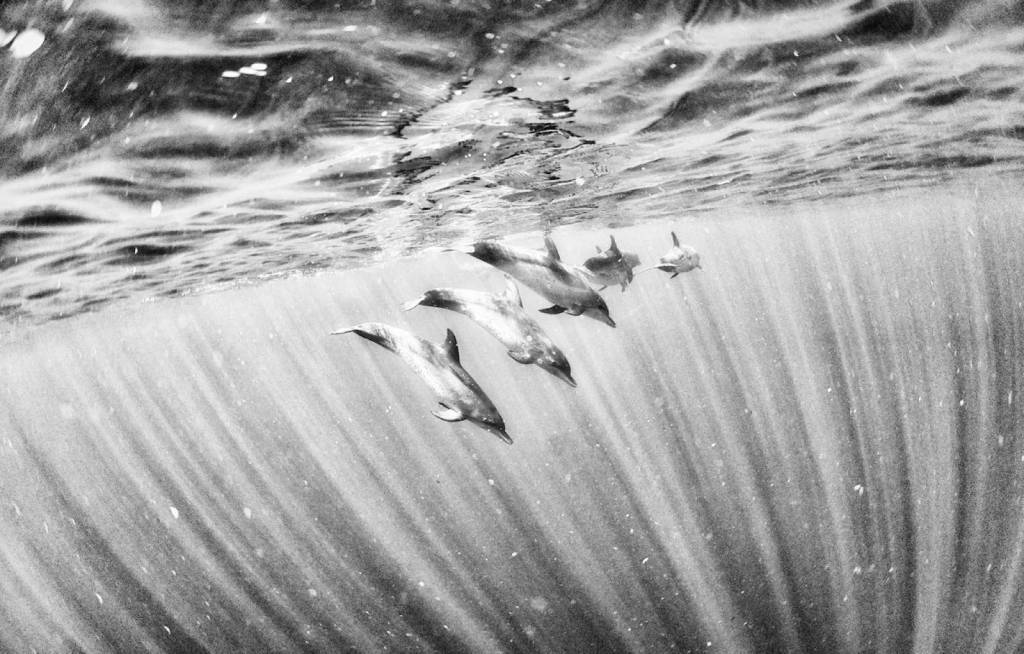This article originally appeared on AMUSE.
Anuar Patjane is the world’s best nature photographer, capturing unbelievable underwater moments on a camera that costs just $398 online.
Videos by VICE
The trained sociologist has won awards such as one of the World Press Photos ‘Nature’ Awards for 2016, for a photo taken on a digital point-and-shoot. That photo was of a mother humpback whale and her calf watched by divers — so stunning and surreal as to verge on looking like mystic dolphin/whale puzzle art.
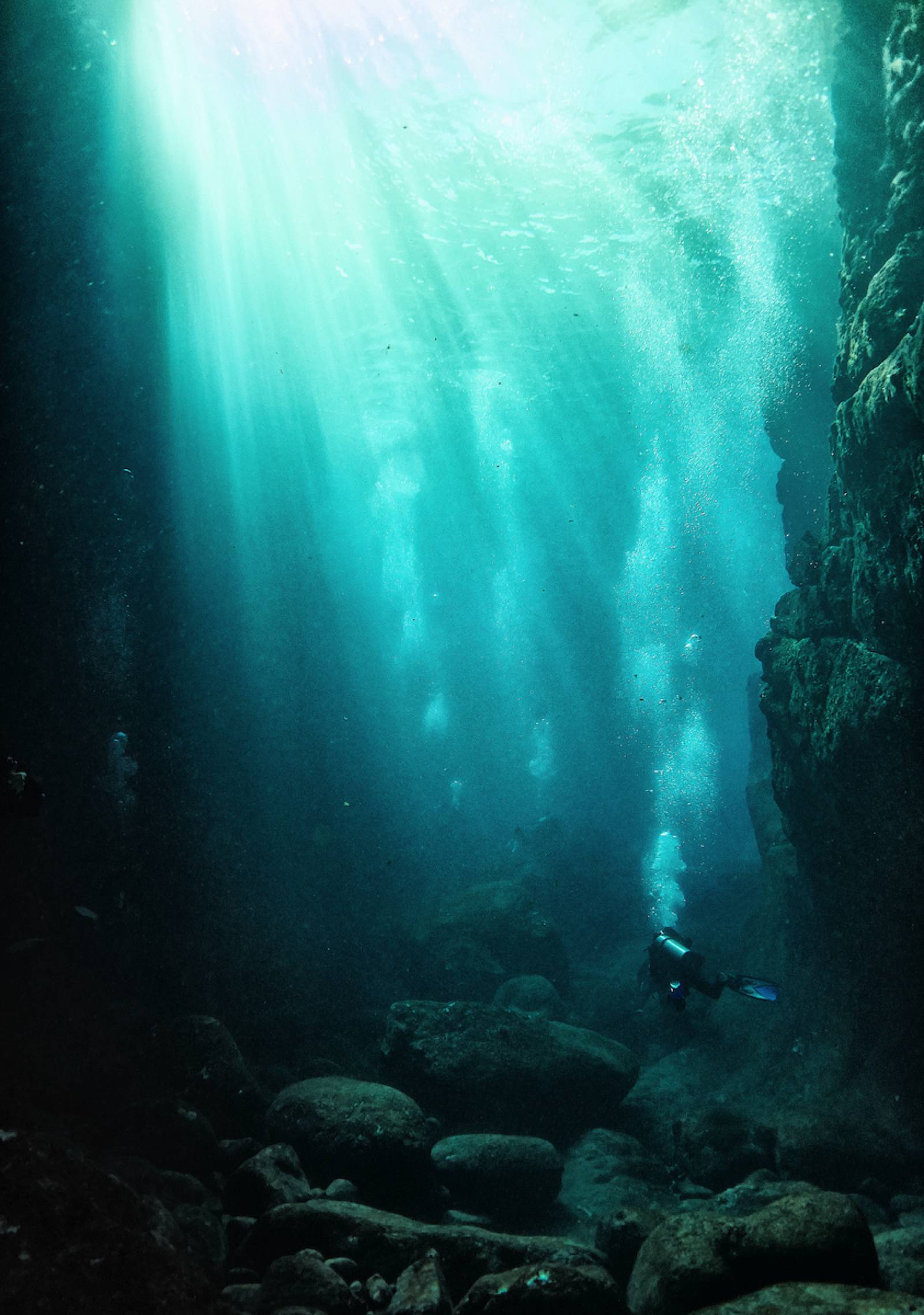
Having dived since he was 17 thanks to his Marine Biologist mother, Anuar is at home under the sea as he is outside of it. We caught up with him to find out more about his magical life.
AMUSE: What is it that you find so inspiring about the world under the sea?
Anuar Patjane: There is a strange irresistible peace and calmness below the water that once you experience you cannot forget or avoid — that’s what keeps me going back as often as possible.
Could you tell us a little about your work as a social anthropologist?
As anthropologist I specialized my studies in the socioeconomic and ecological impact of tourism in the Mayan region in Mexico — so that is the baggage I carry on when I photograph. In general this baggage can be simplified in this sentence: how capitalism and development affects and transforms society and spaces, some for better and some for worse. So I photograph with an anthropological eye.

How can someone get into your line of work?
By accident I guess. It’s a slow process made up of cumulative work, small accidents and dubitative decisions. Nothing is really under our control: we can choose some things – the rest is just a matter of accepting.
You capture the most incredible moments under the sea. Do you think it’s a case of being in the right place at the right time, or seeing things differently to other underwater photographers?
Well, we all have a unique eye, but most photographers reuse archetypes and concepts from other photographers and that diminishes the power of the image. I try to show pure archetypes even though they might be naive or simple — they have to be personal. That is the core: my own dreams, fears, interests and passions. We all need to learn how to unleash our own very particular eye, and by ‘eye’, I mean ‘intuition’. That’s half of the formula; the other one is to be there at the right moment, and for that you need a lot of luck and being persistent.
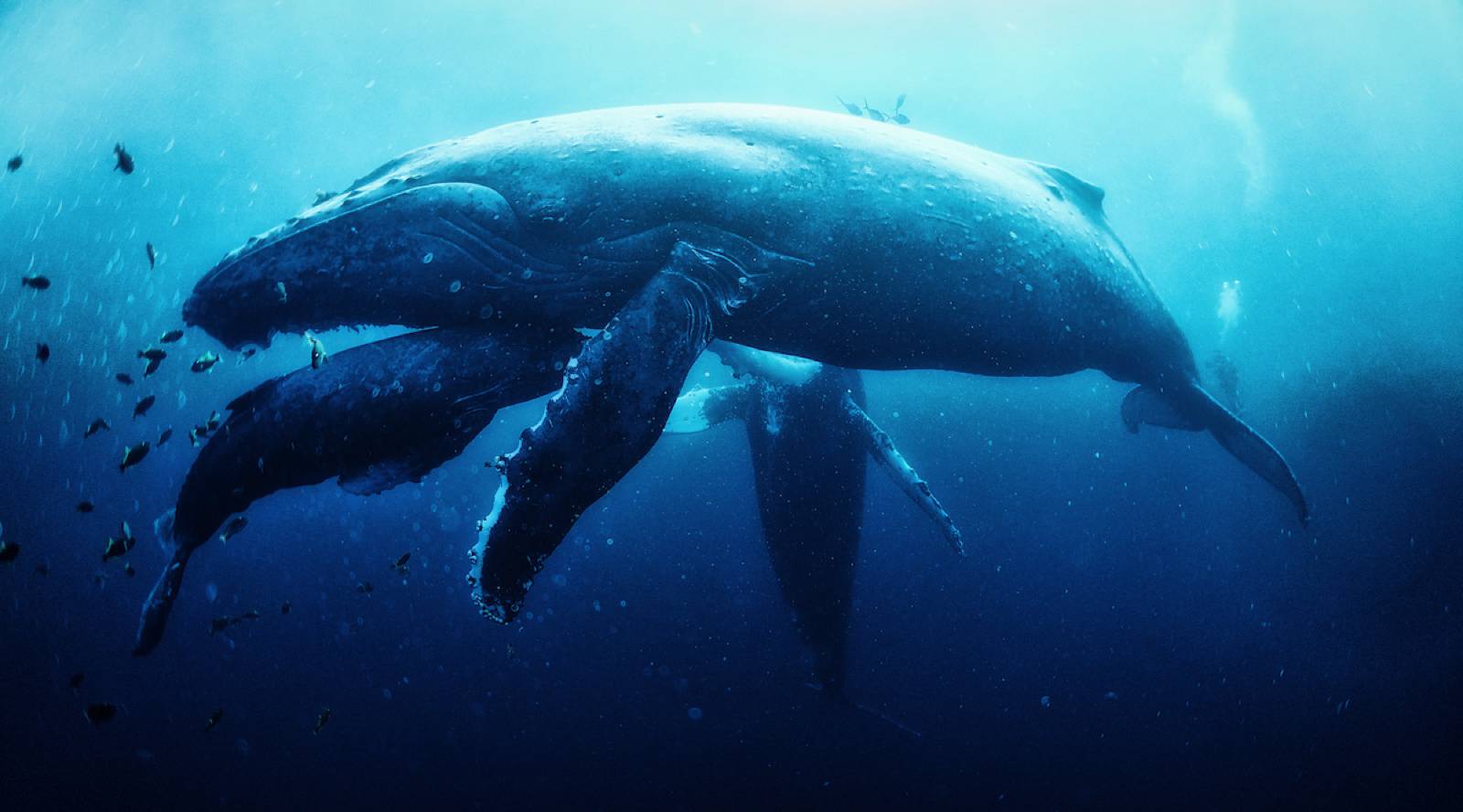
Have there been any incredible experiences in the ocean that were simply too fleeting or stunning to properly capture with your camera?
Yes many. So many have escaped my camera and that’s ok. The best moments are not meant to be captured – they’re meant to be experienced fully. A humpback protecting her calf from orcas, a shark approaching a friend so he can help him remove a fishing hook from its mouth…Even things that you only hear: the singing of whales, the strange sounds that no one really knows who makes them and that sound like a sweet female voice.
What is the most beautiful thing you’ve ever seen in the water?
Dolphins, whales and humans hanging out together, sharing a space in one of the most remote places on earth.

Do you have a favorite photograph, and if so which one is it and why?
Alice is one of my favorites. A girl inside a fish formation, that image really transmits in my opinion the experience of being there.
Where is your favorite place to dive?
This changes often, maybe Iceland and the Sea of Cortés in México right now.

Is there a creature that you haven’t yet?
I would love to see a blue whale while diving.
What is that you hope your work achieves?
To make you wonder what it feels like, to make you feel “I wish I was there”, to make you care more for this world and the species that inhabit it. The problem with the ocean is that most of the people are too detached from it, especially policy makers.
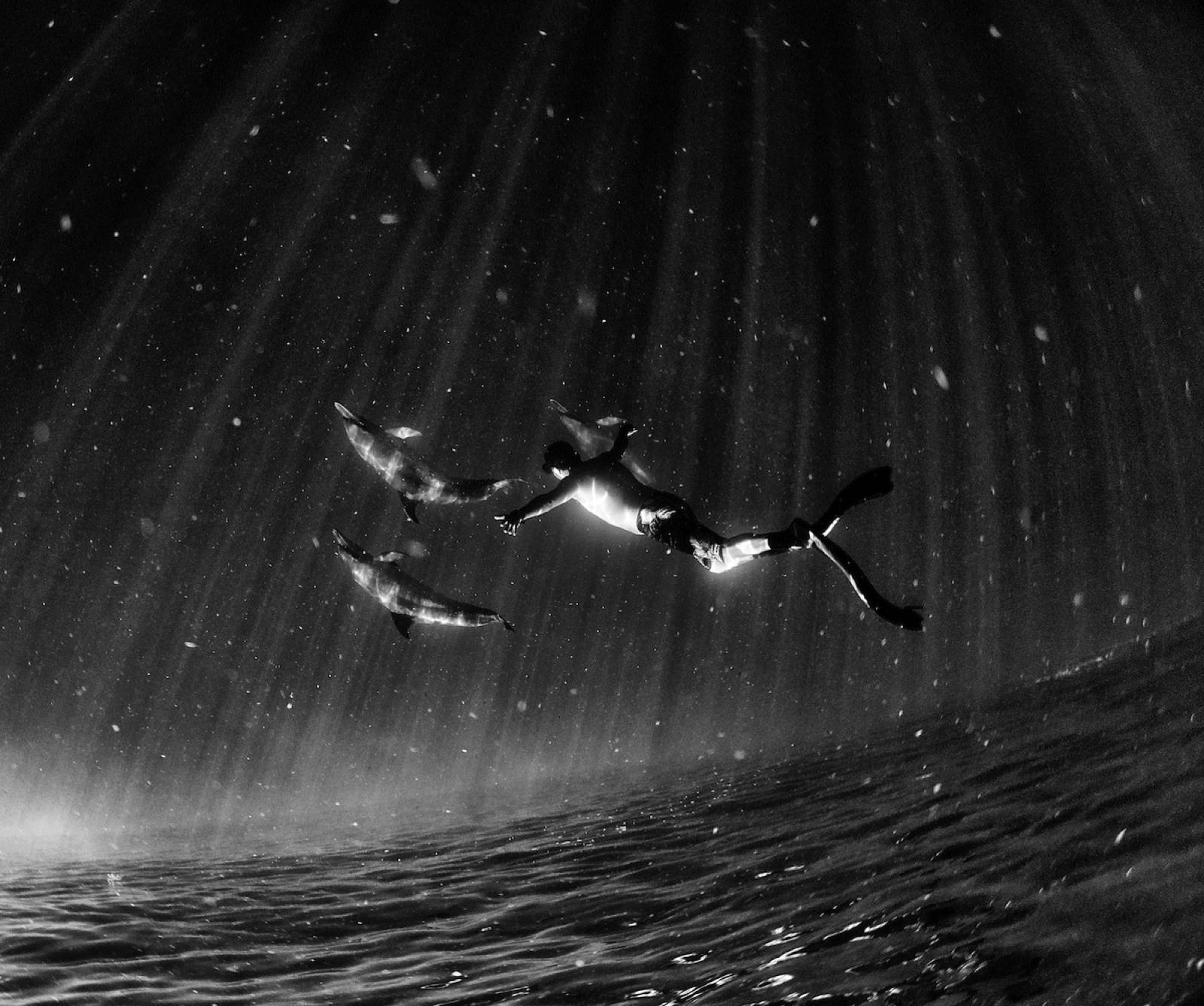
What is your life’s goal?
It is simple — to enjoy the ride fully and pay my rent to the planet. We cannot live carelessly anymore. Our ignorance and lack of will is transforming this planet into a more volatile environment just because of the way we consume and produce our everyday objects and our food. We have become a plague and the planet reacts to our irresponsible behavior just as any system or structure would react to intrusive elements.
Where are you off to next?
Revillagigedo again, I need to pay a visit to the whales.
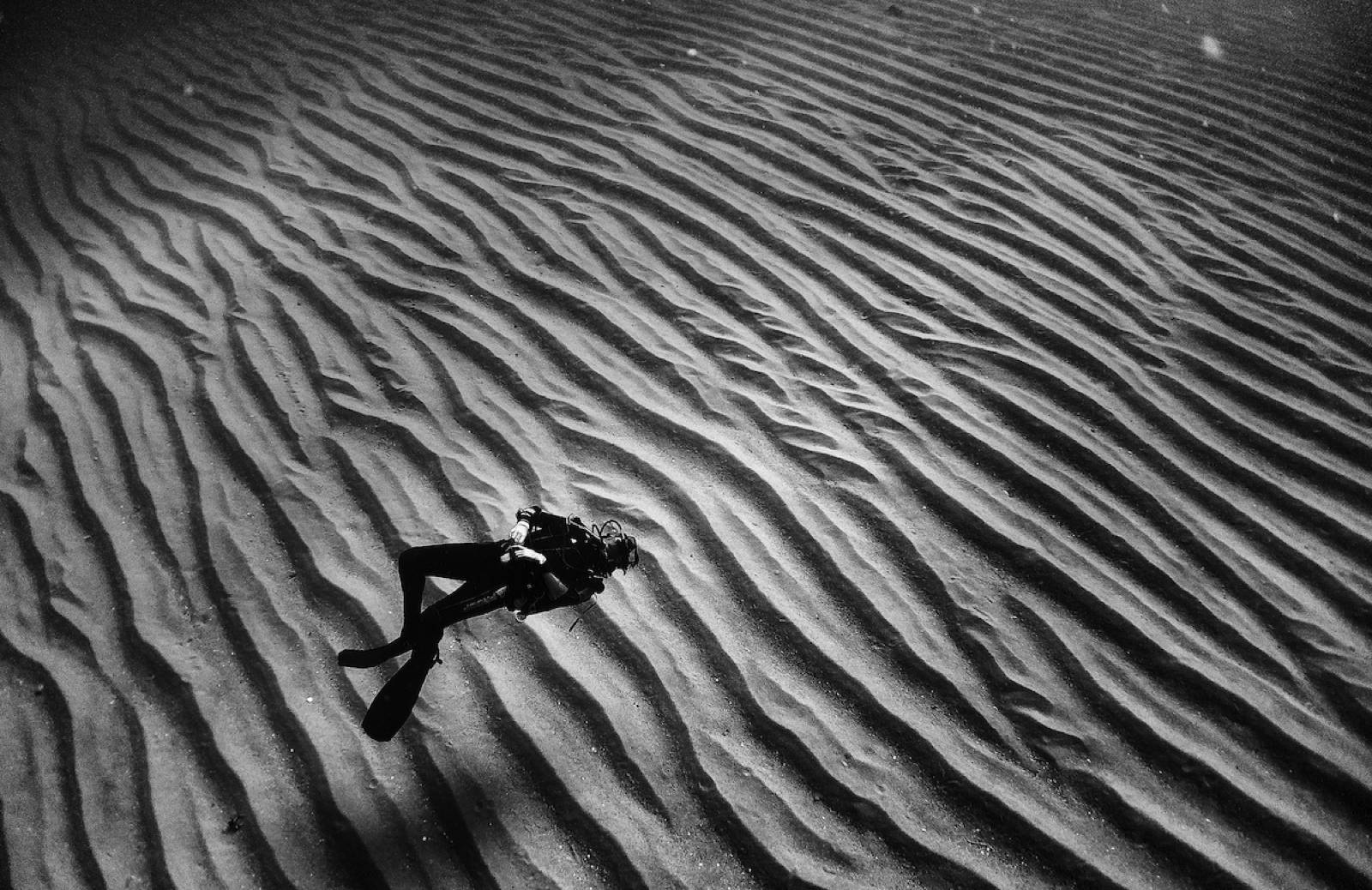
More
From VICE
-

-

Sara Benabdallah -

Carlos Idun-Tawiah -

A rocketeer fires up another giant burning missile to fire at a church on the Greek island of Vrontados
